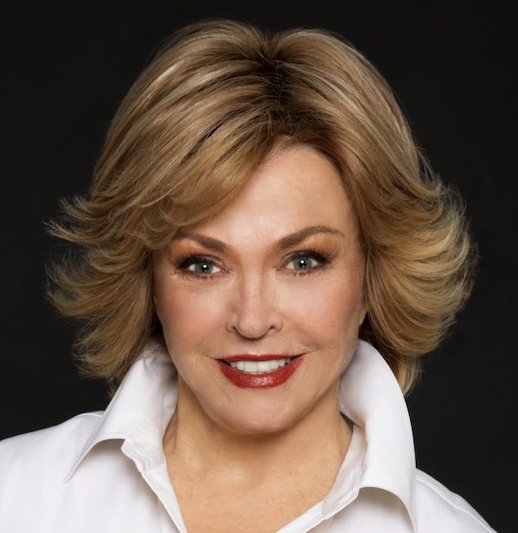As the Senate debates President Biden’s nearly $1 trillion infrastructure plan, I want to write this week about the American Families Plan that the Biden administration hopes to pass next through the reconciliation process — without bipartisan support.
Alongside funding for traditional infrastructure projects, such as improving roads, bridges and tunnels, this new $3.5 trillion package redefines what we mean by “infrastructure” by including billions of dollars for child care, elder care, health care, and care for people with disabilities.
“For decades now, men have made policy and men have talked about the importance of roads and bridges, so that men can go to work, and so that men can create more jobs for men,” Sen. Elizabeth Warren told The San Francisco Chronicle.
“With more women in policy-making — specifically, more mothers — we’re now talking about child care as part of infrastructure,” Warren said. “And that helps create more opportunities for women, more opportunities for mothers, and more opportunities for women to work.”
America Lags Behind the World
The United States is now the only wealthy country in the world without paid family leave, reports The New York Times, “and one of few without subsidized child care. If it had those policies in place pre-pandemic, parents’ lives during lockdown would have been much easier.”
One of the many inequities laid bare by the pandemic was the sorry state of America’s support system for working mothers. Since February 2020, nearly two million women have left the workforce, resulting in the lowest women’s workforce participation in over 30 years.
A report out this week from the National Partnership for Women and Families found that women’s declining participation in the workforce is costing the U.S. economy $650 billion annually.
"If labor force participation for American prime-age women – those aged 25 to 54 – was currently at rates similar to those of women in Canada, Germany and the United Kingdom, there would be up to 4.85 million more women in the workforce than there are now. That amounts to $237 billion in wages per year directly for women and families that are “left on the table,” and $650 billion per year to the economy overall – 2.9 percent of total GDP."
Secretary of Commerce Gina Raimondo has emerged as one of the biggest proponents of paid leave, subsidized child and elder care, and other policies that support working families. She told 19th News, “We’re gonna fight for it until it happens. If It’s not in one bill, we’re gonna fight for it in the next bill. It has to happen.”
“Not only is building strong care infrastructure the right thing to do for care workers and American families across the country — it is also the right thing to do to support our continued economic growth and get Americans, especially women, back to work,” said Secretary Raimondo at a recent TIME’S UP Care Economy Business Council virtual event.
“This issue is all about commerce and the economy. If you want to have a productive workforce, you must provide child care, elder care and care for the disabled. There are millions of women who work in really hard jobs that matter, taking care of children, our elderly and the disabled, with low wages. It is good for our economy to pay them good wages.”
The truth is that all of us will require caregiving at various points in our lives. Let’s make 2021 the year that the United States finally joins other rich nations in offering paid leave and a child care system that doesn’t break the bank for working families, while at the same time offering domestic caregivers the respect and salaries they deserve.
“For far too long, our care system has relied on requiring women, primarily women of color, to endure poverty wages and often demeaning working conditions,” observes Maureen Conway, executive director of The Aspen Institute’s Economic Opportunities Program. “We need a resilient care infrastructure built with a recognition for the critical role of care systems and the human dignity of care workers.”
Building Forward Better
A recent event convened by The Aspen Institute, Valuing Care: Principles for a Post-Pandemic Care Economy, posed several foundational questions that are important to keep in mind as we emerge from the pandemic and chart a path forward.
"As we move from crisis to recovery, how can policy contribute to building a care economy that dignifies the work of caregivers and expands access to quality, affordable care? How can our systems center gender and racial equity to construct a care economy that serves all families? And how can our society support a healthy and sustainable caregiving system for our post-pandemic future, in which the demand for caregiving is poised to continue to grow?"
I encourage you to keep your eye on the debate surrounding the American Families Act. Tell your representatives that America’s human infrastructure is as critical to our economy as strong roads, bridges and waterways!
It’s long past time for the world’s richest nation to build and sustain a care economy that creates opportunity for all of us to go to work knowing that our families are safe, cared for and thriving while we work. Caregiving work is often described as the “invisible work that makes work possible.” By acknowledging the essential role that caregiving work plays in our economy and in our communities, let’s also commit to providing caregivers the wages, health care and benefits they deserve.
Onward!– Pat
Note: I will be taking a break from the newsletter during the month of August. Enjoy the rest of your summer and see you back here in September.


